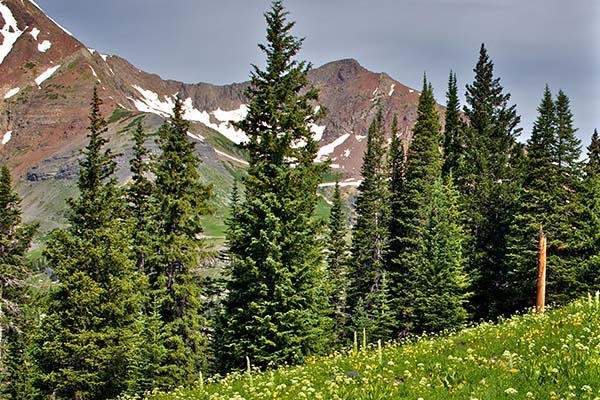
Rise in temperature impacts mountain ecosystem
Higher temperatures are resulting in changes to vegetation and soil in mountain areas throughout the world. An international research team including Leiden ecologist Ellen Cieraad published an article on 25 January in Nature on the disruption to the ecosystem.
Major changes in ecosystem within 80 years
The researchers predict that in mountainous areas the temperature at a given elevation will rise, whereby that same temperature will be found 300 metres higher, which will have far-reaching consequences for the ecosystem. Scientists from ten universities studied the area around the tree-line in seven different regions (Europe, Japan, Australia, New Zealand, Canada, the United States and South America).
Vegetation more vulnerable
Their conclusion is worrying. Climate change in all parts of the world is altering the concentrations of nutrients in plants and soil. Higher temperatures mean that the concentration of nitrogen, for example, is rising considerably, while the same is not true for phosporous. ‘This effect is disrupting the balance between these and other nutrients, which is making the ecosystem more vulnerable,' ecologist Ellen Cieraad explains. Cieraad is affiliated to the Centre for Environmental Sciences at Leiden University and is one of the lead authors of the publication in Nature.

Soil composition changing
As a result of the rise in temperature, many plants are migrating upwards and in some mountainous areas the tree-line is also shifting upwards. Not only this, the higher temperatures are causing changes in the soil: in nutrients, organic matter and the composition of bacteria. That is happening to some extent independently of the kind of vegetation. Cieraad: ‘If the composition of the vegetation changes and on top of that the tree-line is not able to migrate fast enough, the nitrogen and phosphorous cycles will no longer coincide.' Further research is needed to determine to what extent these developments are impacting the tree line.
Higher tree-line has major consequences
A rising tree-line has major consequences. Migration of the tree-line goes hand in hand with changes in the water cycle, snowfall and temperature. The water supply, for example, becomes unreliable, not only in mountainous regions but also in low-lying areas because the water from the mountains feeds major rivers. Many mountainous areas will no longer be suitable for winter sports.
Better predictions
Knowledge about the effects of climate change on the ecosystem in mountain areas is currently quite limited, because this kind of knowledge can only be gained through research over a long period. Rather than short experiments, the researchers studied the composition of and processes in ecosystems at varying elevations in different mountain ranges. Cieraad: ‘The temperature differences at so-called elevation gradients in the mountains constitute a powerful natural experiment in which you can observe the effects of climate change on plant communities and ecosystems. Studying elevation gradients at different places throughout the world means we are able to map changes more quickly and can predict future developments better.'
Article in Nature
Mayor J, et al. Elevation alters ecosystem properties across temperate treelines globally – Nature, 25 Jan 2017 nature.com/articles/doi:10.1038/nature21027
